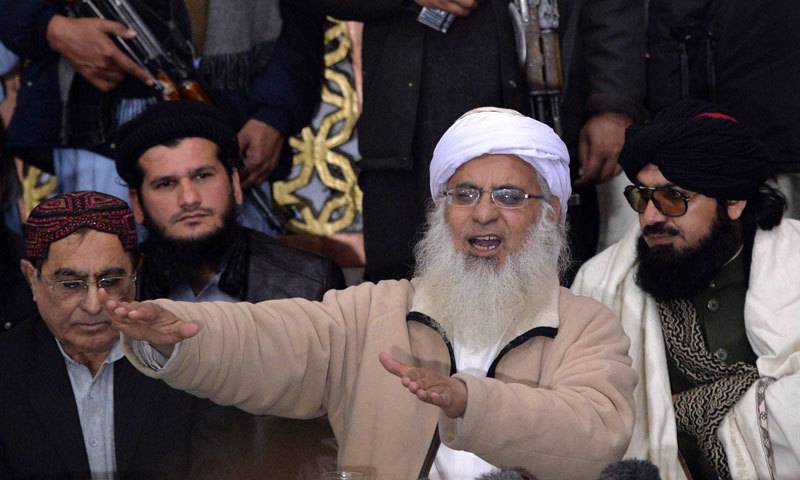Civil society’s perseverance in the face of intimidation and death threats is beginning to bear fruit as Civil Judge Saqib Jawad issued non-bailable arrest warrants for the radical cleric of Lal Masjid, Abdul Aziz, on Friday. The Police had registered an FIR against Abdul Aziz under section 506(2) of the Pakistan Penal Code, which deals with criminal intimidation and threats. Abdul Aziz has a history of preaching violence and justifying murder if carried out in the name of religion. After the massacre of children and staff of the Army Public School in Peshawar, by terrorists affiliated with the Tehreek-e-Taliban Pakistan (TTP), Aziz initially refused to condemn the killings and instead announced that the Taliban were his brothers and ought to be embraced by the state as they too are Muslims. This lead to protests outside the Lal Masjid premises, organised by non-partisan activist Jibran Nasir, who was joined by common citizens and later by members of different political parties as well.
These were unprecedented developments, as a majority of Pakistanis have for decades remained pinned down by fear, violence and intimidation from religious extremists such as Abdul Aziz. Civil society’s protests irked the ‘Maulana’ and others of his ilk. Aziz lashed out during his Friday sermon, and threatened suicide bombings across Pakistan if the Islamabad administration dared to act against him. Violent sectarian outfit, Ahle Sunnal Wal Jamaat (ASWJ), also rushed to the cleric’s defense and issued threats of its own. Ehsanullah Ehsan, spokesman of Jamat-ul-Ahrar, a faction of the TTP, allegedly called Jibran Nasir and asked him to back off or face consequences. However, Aziz and friends failed to dissuade members of the civil society as they continue to push for his arrest.
As expected, the Lal Masjid affiliated Shuhuda Foundation has announced that Abdul Aziz will resist arrest by the police. They have already asked former students of Jamia Hafsa - a seminary for girls run by Aziz’s wife - and others to reach Lal Masjid to prevent Aziz from being arrested. This would not be the first time that the so-called warriors use women as shields to protect themselves against action. During the Lal Masjid operation in 2007, Abdul Aziz adorned a burqa and attempted to escape with female students of Jamia Hafsa but failed. This episode will be used by many as a litmus test for the state’s willingness to take on extremists residing in towns and cities across Pakistan. Will the government empower the Islamabad police to carry out court orders? Will Interior Minister Nisar Ali Khan step forward and free the mosque from radicals instead of offering justifications and apologies on their behalf? Arresting Abdul Aziz will certainly not eradicate terrorism, but it is a step in the right direction. The government would do well to own and empower the civil society’s movement and offer protection to activists, concerned judges and police officials.
Thursday, April 18, 2024
One Step Closer

PPP, PML-N parliamentary delegation in Beijing to boost ties
April 18, 2024
Eight more Sindh ministers sworn in
April 18, 2024
AGP’s audit report discloses irregularities in BRT project
April 18, 2024
National Assembly session tomorrow
April 18, 2024
EC announces election schedule for PP-269
April 18, 2024
Hepatitis Challenge
April 18, 2024
IMF Predictions
April 18, 2024
Wheat War
April 18, 2024
Rail Revival
April 17, 2024
Addressing Climate Change
April 17, 2024
Justice denied
April 18, 2024
AI dilemmas unveiled
April 18, 2024
Tax tangle
April 18, 2024
Workforce inequality
April 17, 2024
New partnerships
April 17, 2024
ePaper - Nawaiwaqt
Advertisement
Nawaiwaqt Group | Copyright © 2024





